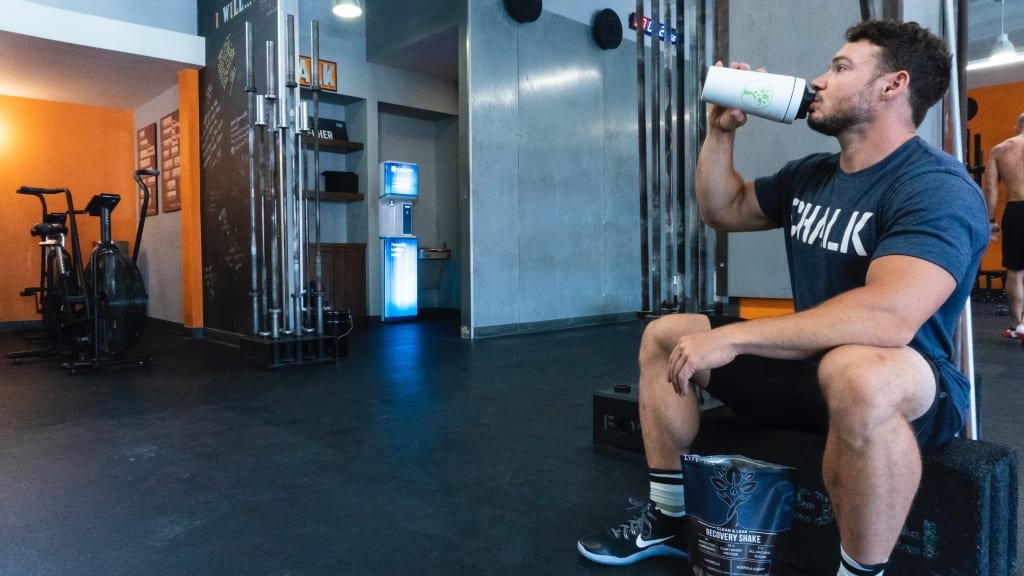The Benefits of Protein Powder for Your Fitness Goals
How Supplementing with Protein Powder Can Help You Achieve Your Fitness Goals

Whether you’re a fitness enthusiast or just looking to improve your overall health, protein powder can be a valuable addition to your diet and fitness routine. Protein is an essential macronutrient that is responsible for building and repairing muscle tissue, and consuming enough protein is crucial for supporting muscle growth, recovery, and overall health. However, getting enough protein from whole foods alone can be challenging, especially for those who are physically active or trying to build muscle. This is where protein powder comes in. In this article, we will explore the benefits of protein powder, how it works, and how to choose the right type for your goals and lifestyle.
What is Protein Powder and How Does it Work?
Protein powder is a dietary supplement that is typically made from whey, casein, soy, pea, or other sources of protein. It comes in the form of a powder that can be mixed with water, milk, or other liquids to create a protein shake or added to foods like oatmeal or yogurt. Protein powder works by providing your body with a concentrated source of protein that is easily and quickly absorbed, helping to support muscle growth and repair.
The Benefits of Supplementing with Protein Powder
There are many benefits to supplementing with protein powder, including:
- Supporting muscle growth and recovery
- Increasing muscle protein synthesis
- Improving athletic performance
- Promoting satiety and weight loss
- Supporting overall health and wellness
Types of Protein Powder: Which One is Right for You?
There are several types of protein powder, each with its own unique benefits and properties. The most common types of protein powder include whey, casein, soy, and pea protein. Whey protein is the most popular type of protein powder and is highly bioavailable, meaning it is easily and quickly absorbed by the body. Casein protein is slower-digesting than whey protein, making it ideal for use before bedtime or as a meal replacement. Soy protein is a good option for vegetarians and vegans, while pea protein is a good choice for those with allergies or sensitivities to dairy or soy.
How Much Protein Powder Should You Take and When?
The amount of protein powder you should take depends on your individual goals, body weight, and activity level. As a general rule, most people should aim to consume around 1 gram of protein per pound of body weight per day. This can be achieved through a combination of whole foods and protein powder. It’s also important to consider when you take your protein powder. Consuming protein powder immediately after exercise can help to support muscle recovery and growth, while taking it before bed can help to prevent muscle breakdown overnight.
Choosing a High-Quality Protein Powder
When choosing a protein powder, it’s important to choose a high-quality product from a reputable brand. Look for protein powders that are third-party tested for purity and quality, and avoid products that contain added sugars, artificial flavors, or other additives. Additionally, consider the type of protein powder that is best suited for your goals and lifestyle.
Potential Side Effects and Risks of Protein Powder
While protein powder can be a safe and effective supplement, it’s important to be aware of potential side effects and risks. Consuming too much protein powder can put a strain on your kidneys and liver, which can lead to health problems over time. Additionally, some protein powders may contain contaminants or heavy metals, which can be harmful to your health if consumed in large amounts. To minimize these risks, it’s important to consume protein powder in moderation and choose high-quality products from reputable brands.
Incorporating Protein Powder into Your Diet and Fitness Routine
If you’re interested in incorporating protein powder into your diet and fitness routine, there are many ways to do so. Protein powder can be added to smoothies, oatmeal, yogurt, and other foods, or consumed as a standalone protein shake. It’s important to experiment with different types of protein powder and flavors to find what works best for you. Additionally, consider timing your protein intake around your workouts to maximize muscle growth and recovery.
In conclusion, protein powder can be a valuable tool for achieving your fitness goals and supporting overall health and wellness. By choosing a high-quality product, consuming protein powder in moderation, and incorporating it into your diet and fitness routine, you can reap the many benefits of this popular supplement.





Comments
There are no comments for this story
Be the first to respond and start the conversation.